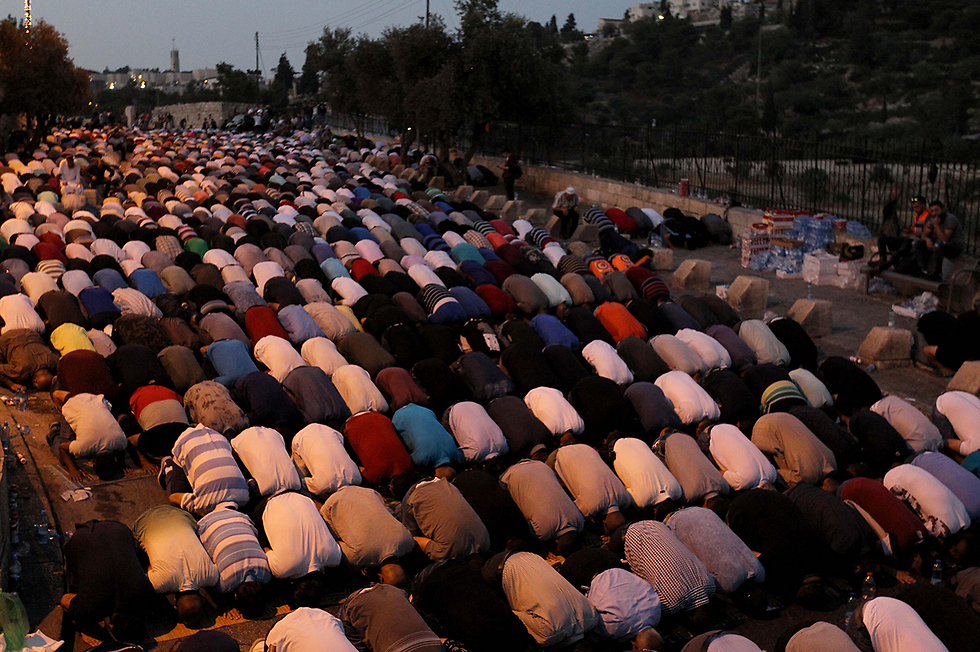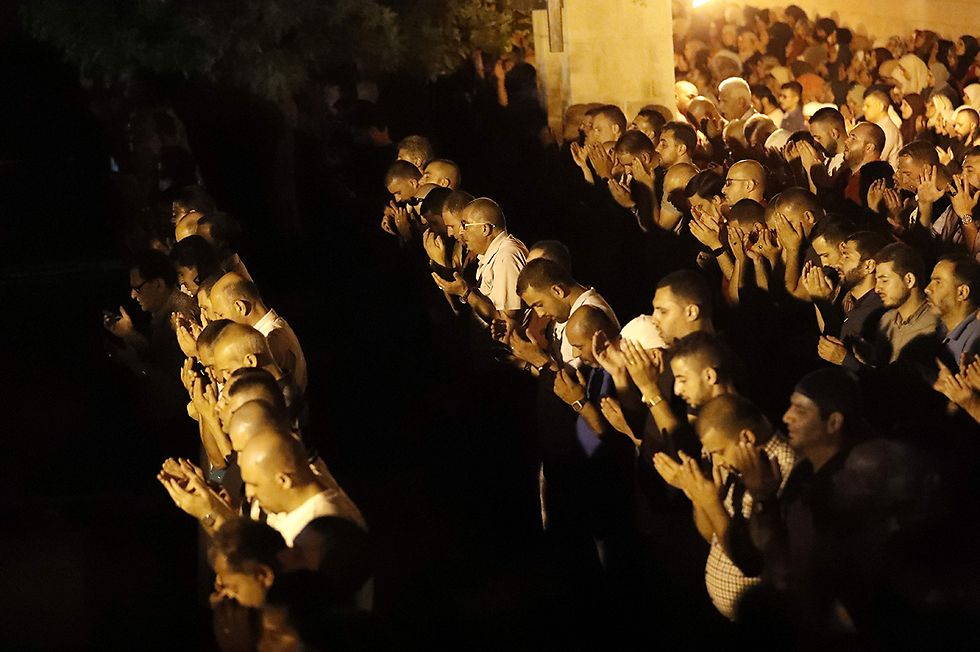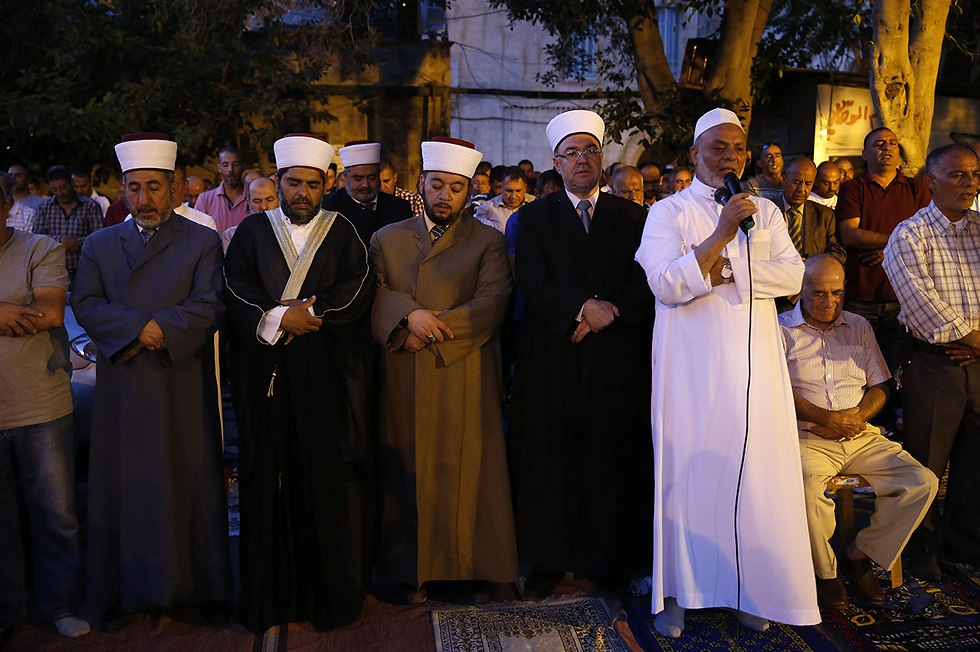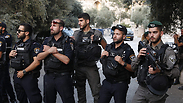
Erdogan, Haniyeh and Abbas are praying for an intifada
Analysis: The violent energy on the Palestinian street, the Islamist aspiration to ignite an intifada and the Palestinian president's attempt to leverage the metal detectors crisis for diplomatic achievements require the Israeli government to use force, but to exercise restraint and avoid killing Palestinians. On the diplomatic level, Israel should enlist the US and EU to pressure Turkey, Hamas and Abbas, and launch a regular dialogue with the Waqf.
One of these famous Islamists is Turkish President Recep Tayyip Erdogan, who—like in the Marmara crisis—is leading the anti-Israeli religious incitement. He’s doing it in his speeches, but also behind the scenes.
Erdogan wants to be the leader of political Islam in the Middle East—in other words, the leader of all the Muslim Brotherhood movements, which both Hamas and Sheikh Raed Salah’s Islamic Movement in Israel are affiliated with. Preserving the conflict at the Temple Mount serves the Islamist-radical camp in the intra-Arab conflict between the moderate Sunni Arab states and Qatar, Turkey and the different Muslim Brotherhood movements. Hamas is one of these movements, and its supporters—together with Raed Salah’s people—are trying to maintain and leverage the violent energy that has accumulated on the Jerusalem-Palestinian street and in the Muslim world in general. Their goal is to turn this energy into a long intifada, which will encompass not only Jerusalem but also the territories and Israel’s Arabs, and will echo and be imitated in the Muslim world in general.
Palestinian President Mahmoud Abbas was also trying to leverage the negative energies and the rage that accumulated during the metal detector crisis. While the prevailing opinion is that Abbas is influenced by the masses in this crisis, there are many signs indicating that he is using the crisis for his own needs. He is trying to take advantage of the Islamist wave to advance what he refers to as “a diplomatic intifada” in the international arena. The goal of this intifada is to delegitimize the State of Israel, isolate it in the international arena and impose an agreement agreement which the Israeli government finds unacceptable through international pressure and sanctions.
Abbas isn’t hiding it. He’s saying it openly and even shooting himself in the foot by reducing the security cooperation with Israel. He isn’t cancelling it altogether because he knows that Hamas will bring him down if he doesn’t have Israel to protect him, but he believes he can have it both ways.
These are the people who are interested in a continuation of the Temple Mount riots. They’re hoping for more deaths and injuries in the clashes with the Israel Police and the IDF in the coming days, and for a local event which will inflame the Palestinian and Islamist street again.
They’re also relying on the traditional tendency in the Arab and Muslim world to believe in mystic conspiracy theories. The facts at the Temple Mount at the moment are that the situation has returned to its original state before the murder of the Israeli police officers on July 14. The metal detectors have been removed, the cameras have been dismantled and the new smart cameras haven’t been installed and it will take a long time before they are installed.
Al-Jazeera, for example, which is inspired by the radical Islamist camp that Qatar is a member of, is promoting myths among the incited crowds in Jerusalem about hidden Israeli cameras allowing the Israeli security forces to see the naked body of the Muslim worshipper who innocently arrives to pray at the Temple Mount. The masses in Jerusalem and outside Jerusalem are enthusiastically buying into these theories, sticking to them and, most importantly, acting as if they were true.
All this—the violent energy that has accumulated on the Palestinian street, Hamas and Erdogan’s aspiration to ignite an intifada and Abbas’ attempt to leverage the metal detectors crisis for diplomatic achievements—require the Israeli government to use force, many police officers, but to exercise maximum restraint. Erdogan, Salah and Ismail Haniyeh want deaths to inflame the intifada. We must not give them that. So we must ensure that there is a massive presence of police forces in any place where riots break out in the coming days, but there must be clear orders to avoid opening fire.
The forces on Jerusalem’s streets, and the roadblocks preventing the arrival of incited crowds from outside Jerusalem, should be reinforced as early as Thursday rather than on Friday morning. A massive reinforcement of the forces in Jerusalem is like throwing a blanket on a fire that has just started burning.
Another measure the Israeli government should take is to enlist the American administration and the European Union countries to pressure Erdogan, Abbas and Haniyeh. Erdogan is a NATO member, and NATO member states can’t stand idly by while one of the alliance’s members incites against a democratic Western state in the Middle East.
Enlisting the Trump administration
Both Abbas and Haniyeh are receiving help and life thanks to the aid they get from the Americans and the Europeans. This aid is an influential leverage which could definitely restrain the Palestinian leaderships both in Ramallah and in Gaza. While Abbas is relaunching his diplomatic intifada because he is disappointed with the Trump administration, as he sees no progress in the efforts to advance peace negotiations according to his conditions, the Trump administration can still definitely make it clear to him that he must not bite the hand that feeds him.
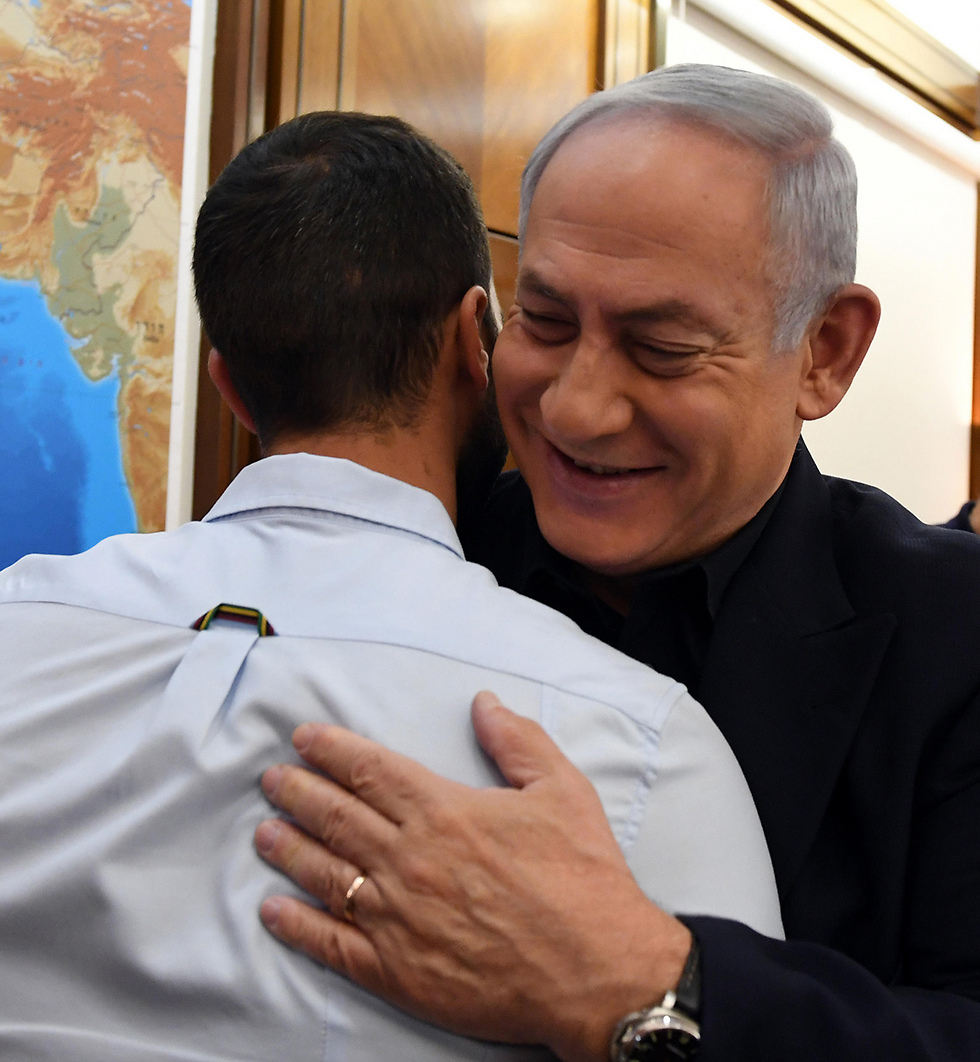
As for the crisis with Jordan, the incident should be thoroughly investigated. Did the security guard have to shoot the Palestinian teen who attacked him with a screwdriver, or could the former Givati company commander have kicked and neutralized the youth? Not every incident requires shooting in order to kill. And in light of the international sensitivity, it would be advisable to look into the possibility of having Foreign Ministry’s security guards undergo intensive Krav Maga courses that will prevent the need to shoot. The way the prime minister solved the crisis with Jordan proves that insufficient efforts had been made beforehand to enlist Jordan and Egypt to calm the situation down in the metal detectors affair.
Had US President Donald Trump’s son-in-law, Jared Kushner, telephoned Jordan’s King Abdullah last Thursday, we may have been in a different situation right now. Religious crises have a tendency of escalating quickly, and as time goes by without any significant change, they become chronic and are very difficult to settle, as we are witnessing now.
Most importantly, we must not be afraid. Israel must protect its right and its duty to keep Jerusalem safe and to use force for that purpose. It must, however, avoid killing Palestinians. Experience shows it’s the one thing that leads to lone-wolf terror attacks and inflames the situation more than anything else.
Equally important, the Israeli government and its security organizations must do everything in their power to neutralized the religious rage and the violent energies on the Muslim street:
First of all, they must avoid public statements, like the one Prime Minister Benjamin Netanyahu made, about “individual security checks.” While the statement was meant for the Israeli Right’s ears, it echoes in the Muslim world and affirms the claim that the status quo has not been restored at the Temple Mount.
Second, they must avoid activities that could provoke the Muslim street and social media. They can, for example, wait a week or two before demolishing the home of the terrorist from the June 2016 shooting at Tel Aviv’s Sarona compound.
The Islamists should be allowed to blow off steam, but in a controlled manner which will be made clear to them in advance. A large force at the entrances to the east Jerusalem neighborhoods that are prone to violence will convey the messages to the incited Jerusalem residents as well.
Finally, there is a need for a continuous dialogue with the Waqf, and maybe even with Jerusalem’s mufti. Even it doesn’t help, it won’t hurt to try. The coordinator of the government’s activities in the territories, Major-General Yoav Mordechai, can be tasked with that mission.










